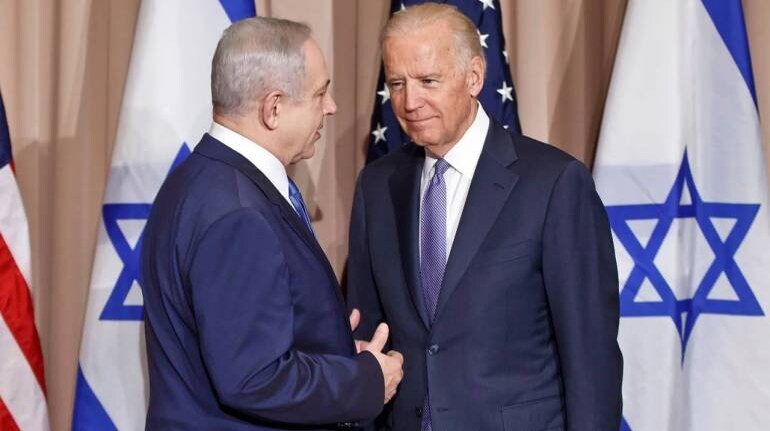In the midst of waves of contention that reverberation across the Center East, Israel makes own decisions purpose for public independence and protection methodologies not just stand as a demonstration of its set of experiences yet as a beacon directing through a complicated present and a questionable future. In a new discussion with English Top state leader David Cameron, Israeli Head of the state Benjamin Netanyahu repeated the country’s firm position on safeguarding its sway – an announcement that undulated through strategic channels and worldwide media. In any case, what does Israel’s functional independence genuinely mean, and what systems does it utilize to hold it while confronting international tensions and security challenges?
The Intricacies of National Autonomy
Israel makes own decisions, national autonomy encompasses more than mere political leverage; it’s a composite of independence in decision-making, strategic defense, economic self-sufficiency, and the preservation of the Zionist vision that led to its foundation.
It represents coarseness notwithstanding existential dangers, development in guard innovation, and a proactive way to deal with getting its lines. From the Israeli Guard Powers (IDF) to Mossad, from the Iron Vault to the David’s Sling rocket safeguard framework, Israel’s vigorous hardware for public independence is however broadened as it seems to be mind boggling.
Dynamic Elements
Being constantly on the brink of conflict necessitates swift and decisive leadership. Israel’s parliamentary governance structure, combined with its elected leaders’ vested authority, fosters a decision-making dynamic that allows both agility and rigorous debate. This structure has often led to quick responses to perceived threats, such as targeted strikes against militant groups and neighboring regimes developing nuclear capabilities.
Security and Surveillance Innovation
Israel makes own decisions development has risen above the regular citizen circle, blending into a fantastic guarded weapons store. Its observation innovation is proclaimed around the world, with progresses in drone reconnaissance, facial acknowledgment, and cutting edge line hindrances. Dynamic Elements.
These technologies not only serve the immediate security needs but also reflect a larger theme of self-reliance and capability building.
Balancing Act
Autonomy for a country that is both a start-up nation and a crucible of ancient cultures demands a delicate balance of safeguarding interests and maintaining diplomatic ties. Israel engages in strategic partnerships globally, particularly in intelligence sharing and military technology collaborations, harnessing such alliances to further its defensive strength while also contributing to the security of its allies.
Response to Recent Escalations
The region’s unstable power dynamics often result in flare-ups that test Israel’s resolve and its ability to act autonomously in its best interests. The recent string of missile and drone attacks, unprecedented in their scale, have again placed Israel in a crucible. Prime Minister Netanyahu’s immediate pledge for retaliation underscores the non-negotiable nature of Israel’s defense. However, the response isn’t just about military action; it also involves measured diplomatic maneuvers to isolate aggressors and garner international support.
Military Maneuvers
Israel’s military tactics in response to provocations are not merely reactive but also designed to degrade enemy capabilities and deter future assaults. These maneuvers often include precision airstrikes on key targets and cross-border operations to neutralize terrorist threats.
Diplomatic Posturing
Concurrently, Israel engages in diplomatic efforts to alert the international community to the complex web of regional hostilities and, more importantly, to ensure a seat at the negotiation table. Israel’s diplomatic representatives frame these incidents as part of a larger pattern of aggression, seeking unified responses that legitimize its defensive actions.
International Support
Netanyahu’s conversations with global leaders, post-escalation, are not requests for action but statements that Israel is ready to assert its autonomy in securing its borders and citizens. These interactions aim to solidify bilateral relations and invoke the support mechanisms established through years of international diplomacy.
The Ever-Present Security Imperative
Israel makes own decisions, the tinge of uncertainty is a constant companion. One of the fundamental roles of its autonomy and defense strategies is to transform this character into one of resilience and anticipation. From the shores of the Mediterranean to the Golan Heights, and from the desert expanses to urban centers, the security imperative shapes every facet of Israeli life.
Civil Defense and Preparedness
The pervasive nature of security concerns demands a unique approach to national preparedness. Israel’s emphasis on civil defense is a textbook case study, with the population regularly participating in drills, the presence of bomb shelters in every public establishment, and an integrated alert system that covers digital platforms, sirens, and broadcast media.
Public-Private Defense Synergy
The synergy between the public and private sectors in matters of national security is also a critical dimension of Israel’s defensive fabric. The defense industry forms a significant sector of the economy, with both civilian and military applications that are at the frontier of technology. This integration not only bolsters Israel’s military prowess but also serves as an engine for its economic growth.
Ethos of Vigilance
An ethos of cautiousness pervades Israeli society, convincing residents to play a functioning job in their own security and that of the country. This aggregate liability supports grassroots detailing of dubious exercises, witnesses, and local area policing works on, guaranteeing that protection isn’t exclusively the domain of the public authority or the military.
Conclusion
Israel’s independence and protection techniques are not just reactions to its fretful geology; they are a piece of its public person, an impression of its versatility and tirelessness. Netanyahu’s striking declaration of Israel’s dynamic capacities is an update that in issues influencing its sway and security, Israel eventually controls its own fate. The intricate policies crafted in boardrooms and the precise targeting executed in battlefield commands are all part of a narrative that intersects with a people’s history and the shaping of their future. In an undulating global landscape, Israel’s navigation of its autonomy and security mandates is a lesson in both the art and the necessity of making one’s own decisions.




